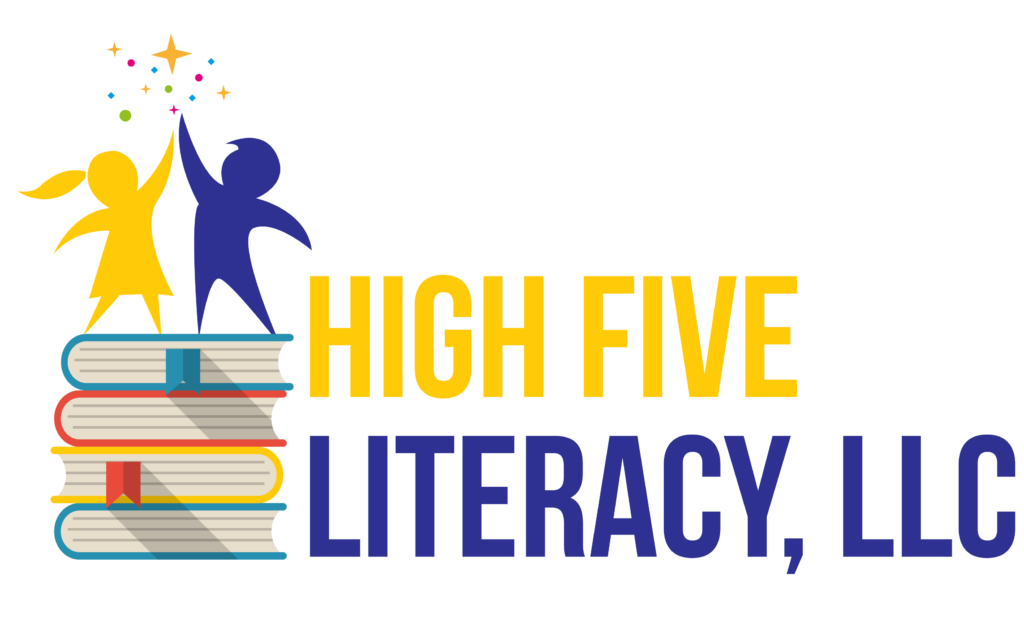
“How many of you have a dyslexia diagnosis and STILL do not receive appropriate services for your child?” I posted this question on my Facebook and Twitter pages and it received a lot of responses from parents all over the world. Here is a partial list:
“They take credit for all of his gains but those are from the private tutoring we provide. I look at what the school does as some reinforcement for what he gets privately. I’m trying to drag them into a better place, but the “programs” they have invested in are ridiculous and the perpetual manipulations are criminal.”
“I actually had an IEP meeting that went something like, ‘well, your daughter is too smart and would be bored in resource if we did the (Orton-Gillingham) OG work.’”
“…most parents think a diagnosis = services. It doesn’t. And, even if you get in the door, and get an IEP, most are terribly written and may just contain a fluency goal for reading.”
“Special education sadly is based on budget and a lot of the time they won’t even tell you the services they have available for your child such as an Orton Gillingham based class or assistive technology.”
“Mine is getting appropriate services… because I am providing instruction myself. The public schools (that make up my local school district) do not believe Dyslexia is a real thing, so they will never provide appropriate instruction and interventions for them.”
“…so, yes, a little bit of a fight x about 9 years. I forgot to mention I scored lots of retaliation in the process.”
“Yes, I simply provide it myself as no help is coming. Although this does not make it okay… we just do the best we can with the time we have… it’s frustrating and demoralising.”
“While they (teachers) are trained, it is my contention that my child learned to read via private intervention, not the services provided at school -which are not intensive or individualized enough.”
“The school says he does not have dyslexia despite what the data in the IEE says and the team conducted. The school wants to say it is his asthma meds causing him to have ADHD. I say they want the ADHD term because there is a bit of crossover between ADHD and dyslexia.”
“The school won’t help until they show ‘academic need.’”
“The school has failed my daughter in not providing dyslexia intervention. I have even been told to my face I would need to have those services done outside of school. So, I myself provide dyslexia intervention.”
“The child study team said she won’t qualify, that she’s just a slow learner, and that she’ll catch up. Yet we’re finishing 3rd grade and reading is still a huge struggle.”
“I was supposed to know what he needed rather than having experts help me understand. I felt like I needed a PhD just to figure it all out.”
“We stopped “services” in the public school to keep our daughter full-time at the private school. We chose mental health, but you shouldn’t have to choose.”
“Same here- we got the heck out of public school. They were clueless and my daughter suffered enough. Absolutely criminal that parents should have to make that decision.”
And the list goes on…
Why is it so difficult to get reading instruction right?
With so many states acknowledging dyslexia and passing bills for universal screeners, why are so many parents still dissatisfied and forced to fight an uphill battle?
Just look at the top three instructional and reading intervention programs available and check out the latest spin their founders are using to protect their turf. The Big Three – Fountas and Pinnell Leveled Literacy and Leveled Literacy Intervention (LLI), Lucy Calkins’ Teachers College Reading and Writing Project (TCRWP), and Marie Clay’s Reading Recovery – have, for years, promoted their approaches as the gold standards in “Balanced Literacy” education. But now, recognizing the backlash fueled by dyslexia and phonics advocates and reading science proponents, their efforts to adapt their programs and messages to the new reality are laughable to those in the know, if not creative. Rather than acknowledge that “Balanced Literacy” fails large numbers of children, they’ve chosen instead to tweak their programs and/or modify their messages to give the appearance that they are cutting edge and responsive to the changing landscape. Unfortunately, the changes lack substance.
Fountas and Pinnell just recently tweeted, “We do not use the term ‘balanced literacy.’ Instead we prefer RESPONSIVE TEACHING: knowing the learner, then knowing the text, then deciding what areas to teach and adjusting your instruction based on what you observe in your students.” Really? How is this any different from Balanced Literacy? Shouldn’t all teachers be “responsive”? How about simply teaching all children to read in a systematic, evidence-based way? Doing so in no way precludes teachers from providing authentic literature for those children who pick up decoding quickly, and may actually narrow the achievement gap.
Lucy Calkins’ TCRWP recently added Units of Study in Phonics to her Balanced Literacy curriculum. It is supposed to be a “game changer.” On the Heinemann Publishing website, it is described as a “Lean and Efficient Curriculum.” It says, “Phonics instruction benefits children when it supplements and does not replace reading and writing instruction. Every minute you spend teaching phonics (or preparing phonics materials to use in your lessons) is less time spent teaching other things.” What??? Isn’t phonics part of reading instruction? Learning to decode and spell words are supplemental activities? So…she adds a phonics component, pumps it up with elitist language, and then minimizes its importance and efficacy. How does time spent on phonics take away time “spent teaching other things”? What things? Teaching children to guess at words based on pictures and context? In what other enterprise but education is the teaching of fundamentals so disdained?
And on the Reading Recovery website, under the question, “What is the role of phonics in Reading Recovery?” it states, “Reading Recovery teachers recognize that decoding must be purposeful. They help children learn to use connections between letters and sounds and to use their knowledge of how words work in order to solve problems with difficult words while maintaining comprehension.” Isn’t the purpose of phonics to teach children how to decode words? Why would children have to “problem-solve” reading words if they understood the alphabetic code? They problem solve in Reading Recovery because they haven’t been taught to truly read the words and need to use coping strategies to gain meaning BECAUSE they can’t read the words.
You would think the above statements were taken from pages written thirty years ago, but, sadly, this is all happening today. The rebranding of Balanced Literacy, using a smattering of phony phonics, slick terms like “responsive teaching,” and nonsensical calls for the teaching of decoding in “purposeful” ways to maintain comprehension, are calculated attempts to dupe the public into believing that children are getting evidence-based instruction.
Meanwhile, parents continue to hope that a dyslexia diagnosis will be the answer they need to finally get appropriate help for their children. As seen from the above quotes, this is not necessarily the case. Struggling readers, whether dyslexic or not, who are pulled out for interventions in Balanced Literacy districts, essentially take two steps backward for every one step forward when they return to their classrooms where Guided Reading and guessing strategies prevail. Unfortunately, until there is a paradigm shift, where general education and special education are aligned, and there is a true understanding and implementation of the reading process, the Big Three will continue to redesign, update, and promote their flawed Balanced Literacy schemes, and continue to make boatloads of money in the process.
Faith Borkowsky, Founder of High Five Literacy and Academic Coaching, is a Certified Wilson Dyslexia Practitioner, is Orton-Gillingham trained, and has extensive training and experience in a number of other research-based, peer-reviewed programs that have produced positive gains for students with dyslexia, auditory processing disorder, ADD/ADHD, and a host of learning difficulties. Her award-winning book, Failing Students or Failing Schools? A Parent’s Guide to Reading Instruction and Intervention, is available on Barnes and Noble https://www.barnesandnoble.com/w/failing-students-or-failing-schools-faith-borkowsky/1128896546 and Amazon https://www.amazon.com/dp/1937615456/

11 Comments. Leave new
Your amazing! Thank you for shinning a floodlight on the elephant in the room! To parents that get worn down and children that become hopelessly discouraged, we know there is an elephant in the room, but have been lacking the ability to get the Nay Sayers to see or acknowledge its existence…
Brilliantly written! What is even more frustrating is the big publishers pushing these resources have such a strong following.
Fantastic article Faith!!! Well said, and needs to said some more!
Thank you for addressing this important issue. It is sad that the marketing machines behind these inappropriate intervention programs just continue “to put lipstick on a pig”.
Many thanks, Faith, for all your work to advocate for evidence-informed reading instruction and for calling out when we do not see it. I have added your post to the International Foundation for Effective Reading Instruction here: https://iferi.org/iferi_forum/viewtopic.php?f=2&t=1221&p=2503#p2503
This is a hard pill to swallow, but you have me thinking! I’ve been a reading teacher for 15 years and have used the “big three” as role models of effective reading instruction. Lots to unpack here! Many questions as I get ready to start the school year and figure out how to best serve my kiddies!
I’m a classroom teacher, but I also taught reading using the f&p strategies and was trained in LLI. I feel the same way, trying to unpack and figure out what changes I can make to make my instruction more sound following this new information, while still keeping the district and school happy. I admire your attitude of openness to change. You would think this would be everyone’s attitude, but most people are acting like I just told them aliens exist.
For 20 years my district called F & P Guided Reading, the Gold Standard of Reading Instruction. For 20 years I have tutored kids trained to guess under that system who couldn’t tell bib from did, squeal from squirrel, or believe it or not, duck from quack!
Thank you Faith. As a speech pathologist who works with children with dyslexia I am not surprised to read your well written article. I am O-G trained and have advocated for families for 15 years. Nothing has changed in 15 years. My local school district adopted Lucy Calkins Reading Workshop a few years ago and the districts literacy scores are declining rapidly. Lucy Calkins, F and P, and Reading Recovery have directly harmed children by promoting ‘balanced literacy’ and false claims of their successes. While they have profited millions of dollars, tens of thousands of children have not graduated from high school, lost hope for a successful future and suffered emotional damage that lasts a life time because of ‘balanced literacy’. There is a post from a ‘reading specialist’ that uses the three reading programs you mention to teach children to read! What rock are these people living under? Do they not understand the damage they are causing? My solution, in addition to reading remediation, is to hand families over to special education layers and file against the districts. Teachers and administrators should know better. Shame on them.
Look at the media conglomerates behind the publishers. They control the entire spectrum of communication-Ed policy & law, teacher prep, risk management ($), media – news & entertainment (including video games), Edtech, Ed testing, research pubs… $$$ & favors talk loudly.
Thank you for helping parents to understand why schools have failed children with dyslexia and how to help. This book is vital for parent’s advocacy of the basic human right to be able to read. Failure to adopt how we teach reading based on scientific methodology has huge social, emotional and economic implications. The time for change is urgent as the pandemic has only widened the learning gaps.